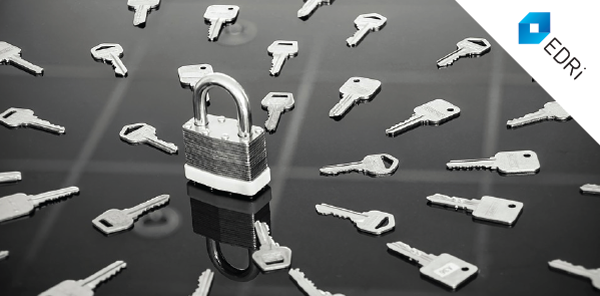High time: Policy makers increasingly embrace encryption
Encryption is of critical importance to our democracy and rule of law. Nevertheless, politicians frequently advocate for weakening this technology. Slowly but surely, however, policy makers seem to start embracing it.
Encryption is essential for the protection of our digital infrastructure and enables us to safely use the internet – without it, our online environment would be a more dangerous one. Thanks to encryption, companies can better protect our personal data online and internet users can safely communicate and exchange information. This makes encryption of the utmost importance not only for our democratic liberties, but also for innovation and economic growth.
Our governments should therefore stimulate the development and implementation of encryption, more than they currently do. It is without doubt undesirable when governments force companies to create backdoors in their encryption technologies, or to incorporate other ways of weakening it. Policy makers generally grapple with this position though, as they face pressure from police and security services.
Fortunately, in 2016, the Dutch government came to the same conclusion. It rightfully determined that “cryptography plays a key role in the technological security of the digital domain”. It further stated that there were “no viable options to weaken encryption technology in general without compromising the safety of digital systems that utilise it”. Put differently, creating a backdoor for the police also creates a backdoor for criminals. Because of this, the Dutch cabinet argues that it is “undesirable to implement legislative measures that would hamper the development, availability and use of encryption in the Netherlands”.
Then again, the Netherlands is only a small country and much of its legislation is determined by the decisions made at the European level. It is therefore heartening to see that the European Parliament passed a resolution in early November 2017, calling on the European Commission and the member states to “enhance security measures, such as encryption and other technologies, to further strengthen security and privacy”. The Parliament also explicitly asked EU Member States to refrain from “enforcing measures that may weaken the networks or services that encryption providers offer, such as creating or encouraging ‘backdoors’”.
The European Commission has also spoken out on the issue. It recently published “Eleventh progress report towards an effective and genuine Security Union”, which lists measures meant to make Europe safer. One of these measures entails supporting law enforcement in dealing with encrypted information. However, the report immediately adds that this should be done “without prohibiting, limiting or weakening encryption”, since “encryption is essential to ensure cybersecurity and the protection of personal data”.
This definitely does not mean it will be smooth sailing from here on. Political positions change rapidly. The Dutch government, for example, states explicitly that weakening encryption is undesirable “at this moment in time”. All it takes for our political leaders to collectively lose their resolve is one serious terrorist attack after which law enforcement and security services investigations are hindered by encryption. It is also hard to predict how Dutch and European lawmakers will respond when pressure mounts from France, Germany or the United States.
The biggest threat, however, is probably far more subtle. Businesses are often pressured to “take their social responsibility” in fighting whatever is seen to be evil at that particular time. They are told: “You don’t want to be seen as a safe haven for terrorists, do you?” The consequence of this is that far too often, these businesses agree to make their digital infrastructure more vulnerable, without any checks or balances. This cooperative attitude is of course adopted “willingly” – but not without pressure from legislation or fear of damage to their reputation. The proposal of the European Commission in its recent policy document to create a “better and more structured collaboration between authorities, service providers and other industry partners” should be read in this light.

The European Commission struggles to find a position on encryption (31.10.2017)
https://edri.org/european-commission-struggles-find-position-encryption/
EU’s plans on encryption: What is needed? (16.10.2017)
https://edri.org/eus-plans-on-encryption-what-is-needed/
EDRi delivers paper on encryption workarounds and human rights (20.09.2017)
https://edri.org/edri-paper-encryption-workarounds/
EDRi position paper on encryption (25.01.2016)
https://edri.org/wp-content/uploads/2020/10/20160125-edri-crypto-position-paper.pdf
Encryption – debunking the myths (03.05.2017)
https://edri.org/encryption-debunking-myths/
(Contribution by Rejo Zenger, EDRi-member Bits of Freedom, the Netherlands; translation by David Uiterwaal)


